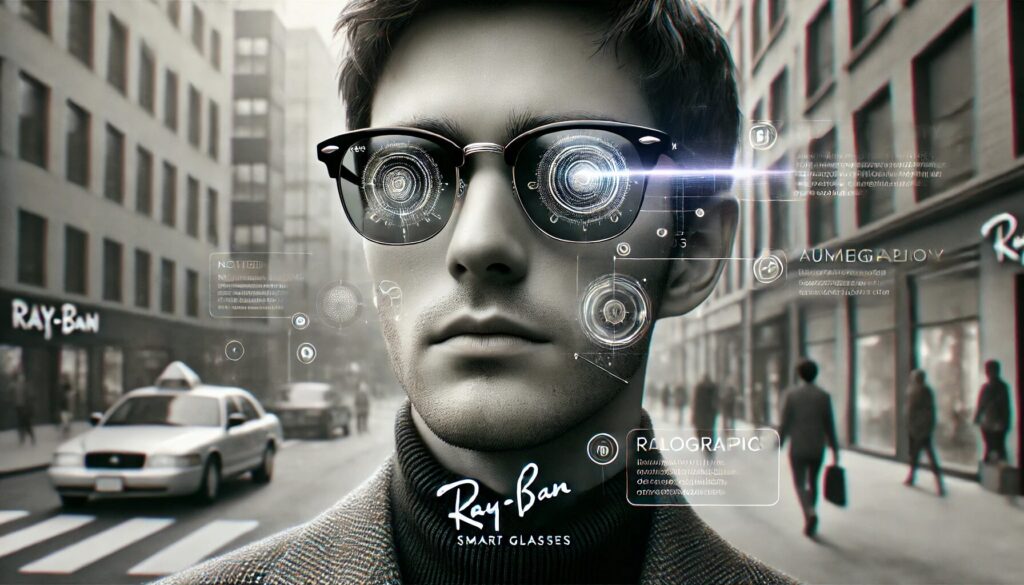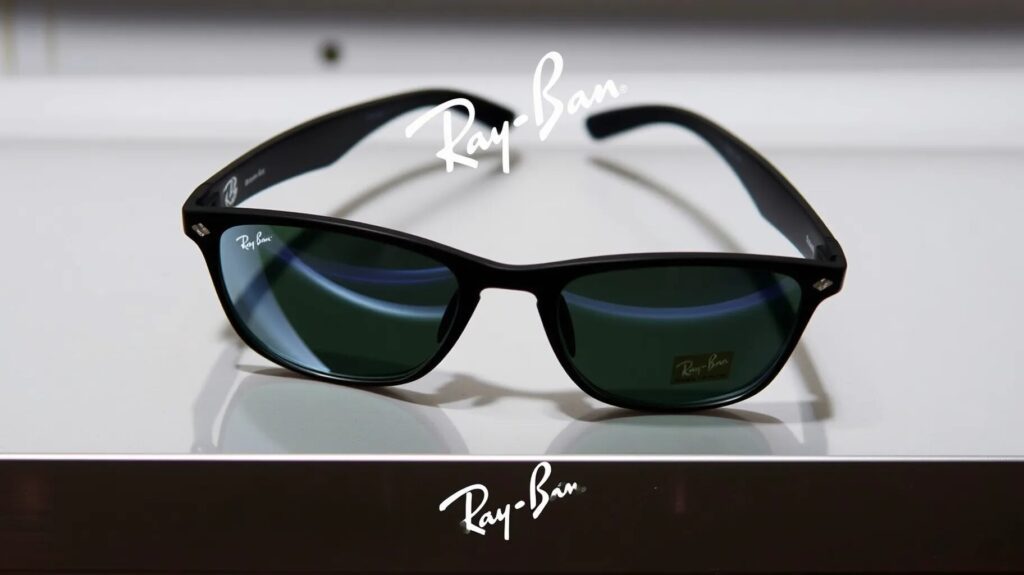
The New Era of Smart Glasses
The world is buzzing about Meta’s Ray-Ban Smart Glasses. These sleek, stylish frames blend cutting-edge tech with fashion, promising an immersive way to capture memories, stay connected, and interact with the world. But with great innovation comes an even greater concern—our privacy. Are these trendy spectacles silently recording your every move, or is it just a leap in wearable technology?
Let’s dive into the privacy storm swirling around Meta’s latest gadget and figure out, once and for all, whether we’re truly being watched.
The Smart Features: What Do They Actually Do?
When you look at these glasses, it’s easy to think they’re just a pair of classic Ray-Bans with a twist. But that twist is more powerful than it seems. Meta’s Smart Glasses come loaded with features: a built-in camera, microphones, and speakers. They allow users to take photos, record videos, and even make hands-free calls.
However, it’s this very feature set that has people wondering. If the person next to you can snap a photo or start recording without even lifting a finger, what’s stopping them from invading your privacy?
Data Collection Concerns: What Is Being Tracked?
Like any smart device today, data collection is at the heart of these glasses. They sync with Meta’s ecosystem, meaning your personal data, including audio, video, and location, could potentially be shared with the tech giant. The idea of glasses that not only see the world but also collect data from it raises a serious question—just how much does Meta know about our daily lives?
It’s worth asking: is the ability to record life’s moments worth the risk of being unknowingly recorded by someone else? Or worse, having your personal information shared without your consent?
Transparency or Lack Thereof: Are Users Aware?

Meta insists that the glasses have LED lights to indicate when recording is happening. It sounds good on paper, but in practice? Not so much. These indicators are subtle, and unless you’re paying close attention, you might miss them entirely.
There’s a growing sentiment that this level of transparency isn’t enough. After all, most people don’t expect to be watched by their friend’s eyewear during a casual coffee meetup. Are consumers really aware of the full implications of wearing (or being around) these high-tech glasses?
Ethical Implications: The Balance of Innovation and Privacy
With these smart glasses, Meta isn’t just pushing tech boundaries—they’re also reshaping the norms around privacy in public spaces. Traditionally, being recorded in public meant you could see a camera, or someone holding up their phone. But now? Recording devices are hidden in plain sight.
This raises some deep ethical questions. How do we balance technological advancement with personal privacy? Should companies like Meta do more to protect bystanders, not just users, from the risks of these futuristic gadgets? The lines between innovation and privacy invasion seem blurrier than ever before.
Legal Loopholes: Are Smart Glasses Breaking Any Laws?
This brings us to the big question—are Meta’s Ray-Ban Smart Glasses actually legal? While they aren’t breaking any laws outright, they do exist in a legal grey area. Current privacy laws weren’t designed with wearable tech in mind, making it harder to enforce rules when it comes to recording in public spaces.
Is it time to update legislation? Should there be stricter regulations about who can use these devices and where they can be used? Many believe it’s long overdue, especially as wearables like smart glasses become more mainstream.
Social Settings: Will People Feel Safe?
Imagine sitting in a restaurant, chatting with friends, and then realizing someone at the next table might be recording you—without you knowing. The mere presence of Meta’s Smart Glasses in social settings could make people feel uneasy. Will we soon see a shift where individuals become hyper-aware of who’s wearing what?
The glasses might foster a sense of paranoia, making us feel like we’re always under surveillance. It raises an interesting point: will privacy concerns drive people to avoid these devices altogether in certain places, or will society just adapt?
Workplace Impact: Is This the Next Distraction?
The workplace is another environment where Meta’s Ray-Ban Smart Glasses could spark heated debates. With the ability to record conversations and meetings, these glasses could easily breach confidentiality and create trust issues among coworkers. Employers may need to update policies to account for these new types of wearables, banning their use during work hours or in sensitive meetings.
And then there’s the productivity question. With the rise of distractions from smartphones and smartwatches, could smart glasses just be the next gadget to interrupt focus? It seems like the workplace will be another battleground for this evolving debate.
Public Spaces: Are We Losing the Right to Anonymity?
In parks, on the streets, and even at concerts, public spaces are supposed to offer some level of anonymity. While it’s true that cameras are already everywhere—from traffic lights to smartphones—wearable tech like smart glasses takes it to a more personal level. The fact that these devices can be worn without drawing much attention raises concerns about whether we’re slowly losing our right to privacy, even in public areas.
Should there be designated zones where smart glasses are banned? Or do we need to accept that anonymity is quickly becoming a thing of the past?
Consumer Sentiment: Are Buyers Concerned?
It’s not all bad news for Meta, though. Despite privacy worries, many consumers are fascinated by the convenience and style of Ray-Ban Smart Glasses. The appeal of wearable technology continues to grow, especially among early adopters who love the idea of being able to capture life in a more immersive way. But the real question is—are buyers aware of the potential privacy concerns, or are they just caught up in the novelty?
Early reviews suggest that while some consumers voice concerns, many are willing to overlook these issues in favor of the cool factor. Still, if privacy concerns intensify, we could see a shift in buyer sentiment down the road.
The Role of Social Media: Amplifying the Debate
It’s impossible to discuss Meta without mentioning social media. These platforms have long been at the heart of the privacy vs. innovation debate, and now Meta’s smart glasses are adding fuel to that fire. On one hand, users can instantly share moments with friends in a more interactive way than ever before. On the other hand, social platforms amplify the risk of content being misused or taken out of context.
Imagine going viral for the wrong reasons because someone recorded you unknowingly. In an age where everything can be posted online in an instant, the risks are higher than ever. Will social media ultimately dictate whether these glasses succeed or fail?
Privacy Activists: Are They Sounding the Alarm?
Privacy advocates have been quick to raise red flags about Meta’s Smart Glasses. For years, these activists have battled against tech companies collecting too much data, and now they see wearable devices as a new frontier. Their main concern? The lack of clear boundaries around how data is collected, stored, and used.
Many believe that Meta is walking a thin line between innovation and privacy violation. Some activists argue that if this technology becomes widespread, people could lose their ability to opt out of being recorded in public. Are these concerns valid, or are they overblown?
Tech Giants and Privacy: Is This the New Normal?
Meta isn’t the only company experimenting with smart glasses. Tech giants like Google, Apple, and Amazon are all developing or releasing their own versions of wearable tech. This begs the question—are these privacy concerns unique to Meta, or are they part of a larger trend?
As more companies invest in smart eyewear, we may be entering a future where constant surveillance is not only accepted but expected. If smart glasses become as common as smartphones, privacy may transform into a luxury rather than a right. Is this the direction society is headed?
The Role of Governments: Should They Step In?
If companies won’t impose strict guidelines on smart glasses, should governments intervene? So far, there’s been little regulation around wearable technology, but as privacy concerns grow, it might be time for lawmakers to take action. Some countries have already begun considering stricter privacy laws for public recording, while others remain behind the curve.
With the rapid pace of technological innovation, can governments keep up? And more importantly, can they create policies that strike a balance between innovation and protecting personal rights? The future of wearables may depend on how governments respond to these concerns.
User Responsibility: Is It Up to Us to Protect Privacy?
Beyond the role of tech companies and governments, there’s another critical piece of the puzzle—the users themselves. With Meta’s Smart Glasses, it falls on individuals to use them responsibly, just as with any other recording device. But can we trust that all users will be respectful of others’ privacy?
There’s a real chance that some people may abuse the technology, either knowingly or out of ignorance. This puts the burden on society to self-regulate, which might not always be effective. Are we ready to trust individuals with such powerful technology?
Future of Smart Wearables: Where Do We Go from Here?
The debate around Meta’s Ray-Ban Smart Glasses is far from over, but one thing is clear—wearable tech is here to stay. Whether these glasses become widely accepted or face backlash depends largely on how society addresses privacy concerns moving forward. Will we see more innovation in this space, or will public distrust slow down the adoption of smart wearables?
What’s certain is that this is just the beginning. As smart technology becomes more advanced, the conversation around privacy will evolve, and we’ll need to figure out how to navigate this brave new world of constant connectivity.
Resources
- Meta’s Official Ray-Ban Stories Privacy Policies
Meta has a dedicated page outlining the privacy settings and data collection policies for their smart glasses. This is a great starting point to understand how the company handles your information.
Meta Privacy Policy for Ray-Ban Stories - Electronic Frontier Foundation (EFF)
The EFF is a leading nonprofit defending civil liberties in the digital world. They frequently discuss the implications of wearable tech and privacy concerns.
EFF on Wearable Technology Privacy - Future of Privacy Forum (FPF)
The FPF regularly analyzes the impact of new technologies, including wearables, on personal privacy and offers suggestions for ethical tech development.
Future of Privacy Forum - Wired Magazine – Wearable Tech and Privacy
Wired covers in-depth articles on the intersection of technology, privacy, and society. Their reports on smart glasses and privacy are detailed and informative.
Wired on Wearable Privacy - International Association of Privacy Professionals (IAPP)
IAPP provides resources and legal frameworks for understanding privacy concerns in technology, especially smart devices and wearables.
IAPP Resources - Consumer Reports on Smart Glasses Privacy
Consumer Reports often evaluates new consumer technologies and their potential impact on privacy. They offer insights from a consumer protection standpoint.
Consumer Reports – Smart Glasses